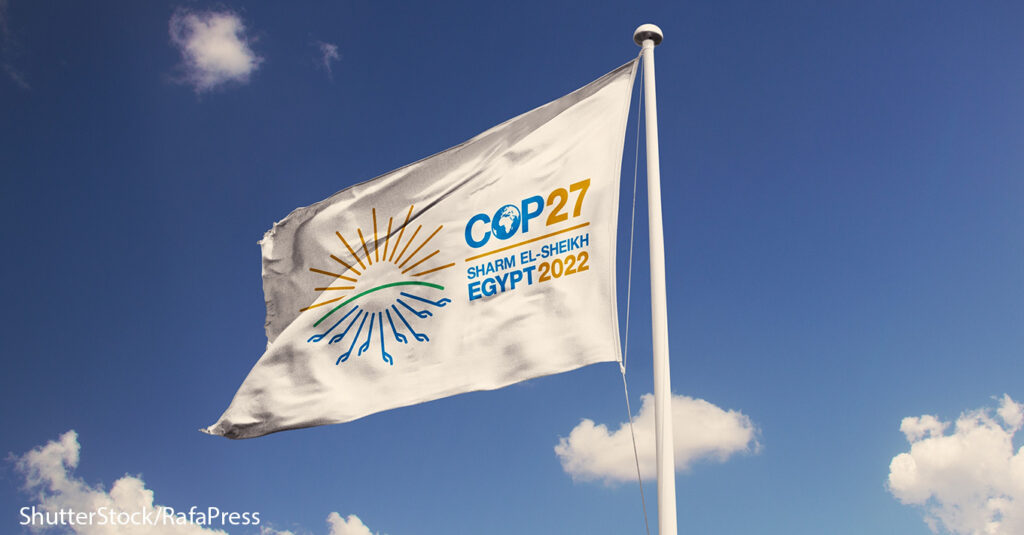
In the climate change commitment implementation, Indonesia takes the lead by example related to the emission balance of the forestry sector of Forestry and Other Land Uses (FOLU) Net Sink 2030.
The statement was addressed by the Indonesia’s Minister of Environment and Forestry Siti Nurbaya Bakar in the World Climate Leaders’ Insight session on the Indonesia’s FOLU Net Sink 2030, at the COP27 Indonesian Pavilion at Sharm El-Sheikh, Egypt, on 9 November 2022.
“Indonesia has now become one of the countries with the lowest rate of deforestation. This is an evidence-based commitment of Indonesia, instead of a mere pledge, as the active contribution to the Paris Agreement and Glasgow Pact,” said Siti as released by the official MoEF website.
On that session, the FOLU sector became one of the pivotal focuses for the Indonesian Nationally Determined Contribution (NDC) as climate change mitigation. In this endeavor, Indonesia has got backups from three developed countries, namely Great Britain, the United States of America, and Norway.
FOLU Net Sink 2030 is a condition in which carbon sink from forestry and other land uses sector has been in balance or even higher than the emission level produced by those sectors by 2030.
On the occasion, Siti also appreciated the roles of millennial generation who stand behind the climate change policy from central government to grassroot levels.
“We appreciate and encourage the roles of young generation as one of the stakeholders who stand behind the success of climate change policy in Indonesia,” said Siti Nurbaya.
Need of Exposure
In the COP27, these agendas were expectedly to not merely talk about climate crisis, but rather more deeply into concrete actions to cope with the crisis. Indonesian roles are properly taken into account due to the significant drop of deforestation rate and the rising NDC target for emission reduction into 31.89 percent in 2030 and 43.20 percent under international support.
Besides, Indonesia has either made several other achievements. For instance, the licenses revocation of palm oil plantation which is followed by the returned rights of management to the indigenous people as it was the case in West Papua. The provincial government has even issued Governor Regulation on the recognition procedure of customary areas and indigenous people.
At the central level, the government has also issued regulations on carbon economic values. The government has been building the carbon trading mechanism using the Indonesian-owned system. It includes the independent calculation and certification mechanism which is expectedly to get international recognition.
Talking about carbon, there should be added values of all kinds of climate mitigation and adaptation endeavors including the acknowledged mechanism. In this respect, the Indonesian government has many chances to build carbon trading groundwork and mechanism in Indonesia.
Those achievements need larger exposure upon noting that there are three largest forests in the world nowadays, namely Indonesia, Brazil, and Congo. In this respect, Indonesia lacks exposure so that the has acquired less flow of financing to meet the NDC target if compared that of other countries.
For the reason, these three countries should build narrative on the imperative protection of forests and indigenous people so as to create a stronger bargaining power to acquire financing from the developed countries.
We hope the global north countries could provide exposure of significant climate financing to the global south countries including Indonesia.
The success key of COP27 is the provision of financing from rich countries. As widely known, the rich countries are deemed the major producer of pollution with less effort which at the end of the day has worsened the climate crisis. To cope with the situation, each nation should be in collaborative actions. Without commanding financing, the developing countries will lose their trusts in the developed countries which could put the collective actions into failure.
There are three types of climate financing, namely emission reduction, adaptation to climate impact, and fund for loss and damage. Many rich countries worried if they are charged for responsibilities to provide compensation for the impact of loss and damage due to climate crisis.
Amidst the prolonging climate crisis, the world has suffered from the death tolls and lost livelihood as a result of heat wave, flood, forest fire, and drought. All has been triggered by the man-made climate crisis in this blue planet.







